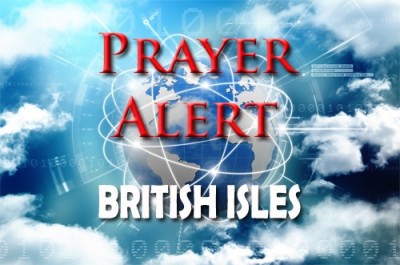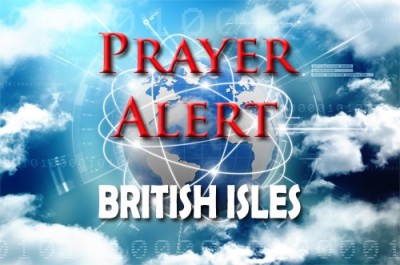A political showdown has erupted in Senegal between president Bassirou Diomaye Faye and prime minister Ousmane Sonko, threatening to fracture the alliance that brought them to power. The dispute began when Faye dismissed Aïssatou Mbodj, a close Sonko ally, from her leadership role in the ‘Diomaye Président’ coalition, replacing her with his own confidante, Aminata Touré. Sonko’s Pastef party swiftly condemned the move as illegal, asserting that the president lacked authority to make such a decision and accusing him of betraying the coalition’s founding principles. The standoff exposes deep divisions over control and ideology at the heart of Senegal’s leadership, raising doubts about whether Faye can govern effectively without his powerful and popular prime minister. With rival factions now entrenched and public confidence wavering, the confrontation risks paralysing government operations and destabilising one of West Africa’s historically steady democracies.
The longest US government shutdown in history has ended after 43 tense days, restoring pay for federal workers and reopening critical services. Yet its conclusion has left both political parties bruised. Senate Democrats triggered the shutdown by refusing to support a temporary funding bill without guarantees to extend health-care subsidies for low-income Americans. When several Democrats defected to jump ship and vote with the Republicans, they received little more than a promise of a future vote, leaving the party’s progressive wing furious and mainstream figures calling the deal a capitulation. Donald Trump, despite moments of apparent wavering, emerged claiming victory, having conceded virtually nothing of substance. With another funding deadline looming in January and millions facing soaring insurance costs, the end of the shutdown brings only temporary relief.
More than twenty years after the vision was first received, plans for the Eternal Wall of Answered Prayer in Warwickshire are finally moving forward. The 169-foot-high monument, almost three times the size of the Angel of the North, will be made from a million bricks, each digitally linked to a unique story of answered prayer. Its creator, Richard Gamble, a former chaplain to Leicester City Football Club and the 2012 Olympics, describes it as 'a monument to make hope visible’. Designed as a Mobius strip symbolising eternity and God’s unending faithfulness, the project has faced years of financial and engineering challenges. But a £30 million gift from a Christian Tory peer has now transformed its future, covering the majority of the £45 million cost. Gamble says the vision has always been about glorifying Jesus through the testimonies of His people. When completed, the wall will stand as a national landmark of faith, thanksgiving, and answered prayer.
On 17 October India’s supreme court of India rejected a religious conversion case against officials of a noted agricultural university in the northern state of Uttar Pradesh, after a protracted legal battle which started in April 2022. The officials, and also staff of a mission hospital, had been accused by a Hindu nationalist of coercing a woman into converting to Christianity and then forcing her to bring nearly sixty other women for a conversion meeting. The court found no credible evidence to substantiate the allegations, and stated that the complainant did not have the legal right to file the complaint. It also recognised serious procedural deficiencies and violations of due process. Delighted Christian community leaders have claimed the ruling as a historic victory which strengthens faith in the justice system and affirms the constitutional promise of religious freedom. It provides a crucial precedent for cases under similar state-level anti-conversion laws, and stands as a reminder that even in cases involving sensitive socio-religious issues, the principles of due process and statutory integrity remain paramount.
In her first interview since the tragic assassination of her husband, Christian commentator Charlie Kirk, Erika Kirk said that her faith in Christ has overcome all fear. When asked if she felt safe, she replied, 'What are they going to threaten me with - going to heaven sooner to be with my husband?' She explained that her confidence is not recklessness but a trust in God’s sovereignty: 'It’s a fearlessness rooted in the understanding that I will have my day and my time whenever that is - when the Lord knows I’ve completed my mission.' She added that neither she nor her husband ever lived in fear, saying, 'If we did, we would never get anything done’. Her response has moved many believers worldwide, standing as a bold witness to courage in grief and unwavering hope in eternal life. Her peace in suffering testifies to the power of faith over fear.
Great British Bake Off champion Jasmine Mitchell, 23, has shared how her Christian faith sustained her throughout the high-pressure competition. The youngest-ever contestant to win ‘Star Baker’ five times, Jasmine said that she leaned heavily on prayer: 'Walking to the tent, I would just pray the Lord’s Prayer in my head. It didn’t take away the stress, but I felt God walking beside me.' Balancing filming with her medical studies, she described the experience as a 'complete miracle' of God’s sustaining grace. She also spoke openly about her journey with alopecia, saying she once prayed for her hair to return, but realised God’s healing meant becoming whole and confident in who He made her to be. Her church community has been a constant encouragement, quietly sharing her bakes and supporting her faith-filled journey. 'God has healed me to make me more whole’, she said, 'and I’m learning to see myself the way He sees me.'
Train company LNER has praised employee Samir 'Sam' Zitouni, 48, for his extraordinary bravery during a mass stabbing on a 6.25pm service from Doncaster to King’s Cross. Samir, a customer host with over 20 years’ service, was critically injured while intervening to protect passengers. CCTV footage confirmed his heroic actions saved many lives. British Transport police described his response as 'nothing short of heroic’. LNER managing director David Horne said, 'In a moment of crisis, Sam did not hesitate to protect those around him. We are so proud of him and continue to support his family.' Samir’s relatives expressed deep gratitude for the outpouring of love, calling him 'a hero - he’s always been a hero to us’. The suspect, Anthony Williams, 32, has been charged with eleven counts of attempted murder in connection with this and related knife attacks across Cambridgeshire and London. Prayers continue for Samir’s full recovery and for those traumatised by the violence.
Police are searching for two inmates who were wrongly released from Wandsworth Prison within days of each other. Brahim Kaddour-Cherif, 24, an Algerian convicted sex offender, was mistakenly freed on 29 October, and 35-year-old William Smith, a convicted fraudster, on 3 November. The incidents have triggered fierce criticism of justice secretary David Lammy, who recently pledged to tighten controls after another mistaken release in Essex. Kaddour-Cherif, who overstayed a visa issued in 2019, was on the sex offenders’ register for five years, while Smith had received a 45-month sentence for multiple fraud offences but was wrongly recorded as having a suspended sentence. The ministry of justice has ordered an independent inquiry to uncover the causes of repeated failures. Prison officers report widespread confusion, overcrowding, and low morale at Wandsworth. The police are continuing the manhunt for both men, amid growing concern over the integrity of the UK’s prison system.







